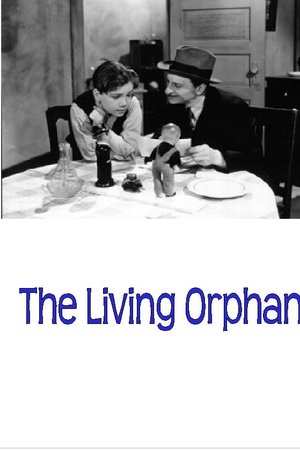My son (1939) [N/A]
Featuring:
Fania Rubina, Gustav Berger, Jerry Rosenberg
Written by:
Sholom Secunda
Joseph Seiden
Chaim Tauber
Directed by:
Joseph Seiden
Release Date:
May 9, 1939
Original Title:
My son
Alternate Titles:
Der Lebediker Yusem
Mayn Zundele
The Living Orphan
Ratings / Certifications:
N/A
Runtime: 97
This dramatic tale of immigrant hardship highlights some of the traumatic problems of the immigrant experience, including alcoholism, separation and poverty. The child star, Jerry Rosenberg (Ross) gives a memorable performance as the son Benny and the film introduces two European stars Fannina Rubina and Gustav Berger. The plot centers on the story of a stage couple that develops marital problems due to the demands of the theatre. The husband, whose career is failing, insists that the wife stay home to tend their young son. The subplot focuses on the plight of a woman who chooses her career over family obligations.
This dramatic tale of immigrant hardship highlights some of the traumatic problems of the immigrant experience, including alcoholism, separation and poverty. The child star, Jerry Rosenberg (Ross) gives a memorable performance as the son Benny and the film introduces two European stars Fannina Rubina and Gustav Berger. The plot centers on the story of a stage couple that develops marital problems due to the demands of the theatre. The husband, whose career is failing, insists that the wife stay home to tend their young son. The subplot focuses on the plight of a woman who chooses her career over family obligations. Set in New York in the 1930's, the film contains some interesting street shots of the Lower East Side and a marvelous scene in the Bialystoker Old Folks Home. One of the best Second Avenue Yiddish theatre domestic melodramas produced in New York City just prior to World War II, the film provides a wonderful example of the sentimental dramas created to entertain and educate the immigrant community. According to the documentation of the film, the Ohio Censorship Board demanded that one scene be eliminated in which the character Lebka says, "I should go to work for whom? For Morgan? For Rockerfeller, for Henry Ford? If the capitalists will go to work, then I will work. They don't have to work, they have plenty of money." The National Center for Jewish Film owns the original nitrate negative and all the rights and copyrights to the property. This film, together with pieces of 30 feature film titles was acquired in 1976 from the family of Joseph Seiden.







